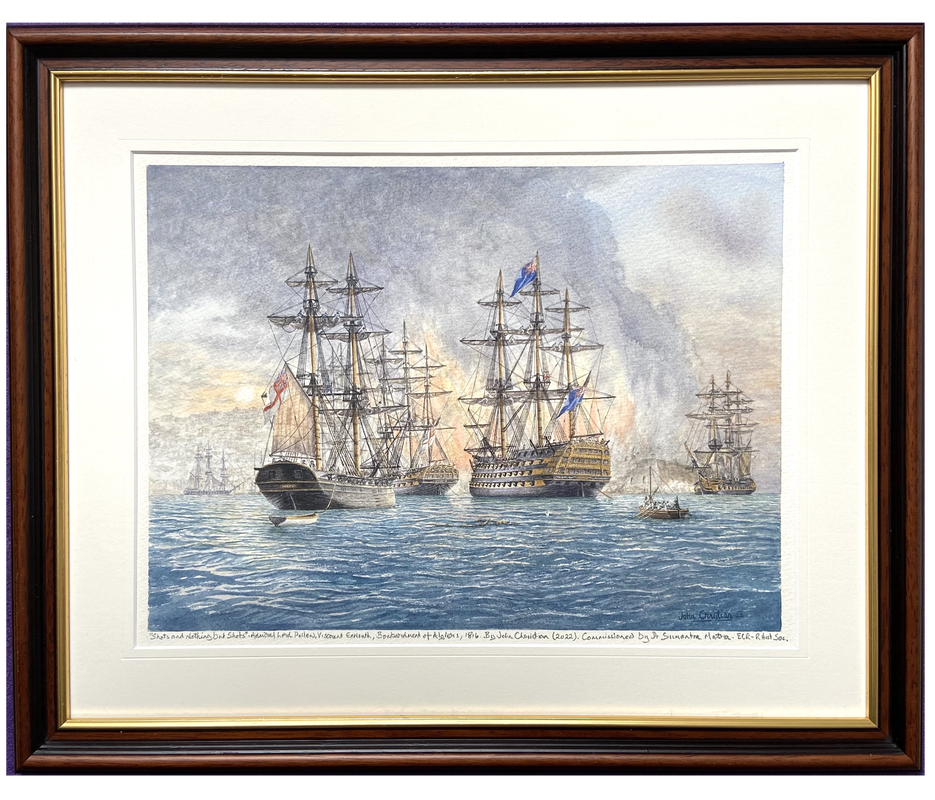
The Bombardment of Algiers - an attempt on 27 August 1816 by Britain and the Netherlands to end the slavery practices of Omar Agha, the Dey of Algiers. An Anglo-Dutch fleet under the command of Admiral Edward Pellew, Viscount Exmouth. Viscount Exmouth bombarded ships and the harbour defences of Algiers.
Exmouth in Queen Charlotte anchored approximately 80 yd (73 m) off the mole, facing the Algerian guns.
In their earlier negotiations, both Exmouth and the Dey of Algiers had stated that they would not fire the first shot. But Algerian discipline was less effective and one Algerian gun fired a shot at 15:15. Exmouth immediately began the bombardment. After an hour, the cannon on the mole were effectively silenced, and Exmouth turned his attention to the shipping in the harbour, which was destroyed by 19:30.
Algerian batteries could not maintain fire and, by 22:15, Exmouth gave the order for the fleet to weigh anchor and sail out of range.
The following day at noon, Exmouth sent the following letter to the Dey:
"Sir, for your atrocities at Bona on defenceless Christians, and your unbecoming disregard of the demands I made yesterday in the name of the Prince Regent of England, the fleet under my orders has given you a signal chastisement, by the total destruction of your navy, storehouse, and arsenal, with half your batteries. As England does not war for the destruction of cities, I am unwilling to visit your personal cruelties upon the unoffending inhabitants of the country, and I therefore offer you the same terms of peace which I conveyed to you yesterday in my Sovereign's name. Without the acceptance of these terms, you can have no peace with England."
He warned that if they were not accepted, then he would continue the action. The Dey accepted the terms. A treaty was signed on September 24, 1816. The Dey freed 1,083 Christian slaves and the British Consul and repaid the ransom money taken in 1816, about £80,000. Over 3,000 slaves in total were later freed.